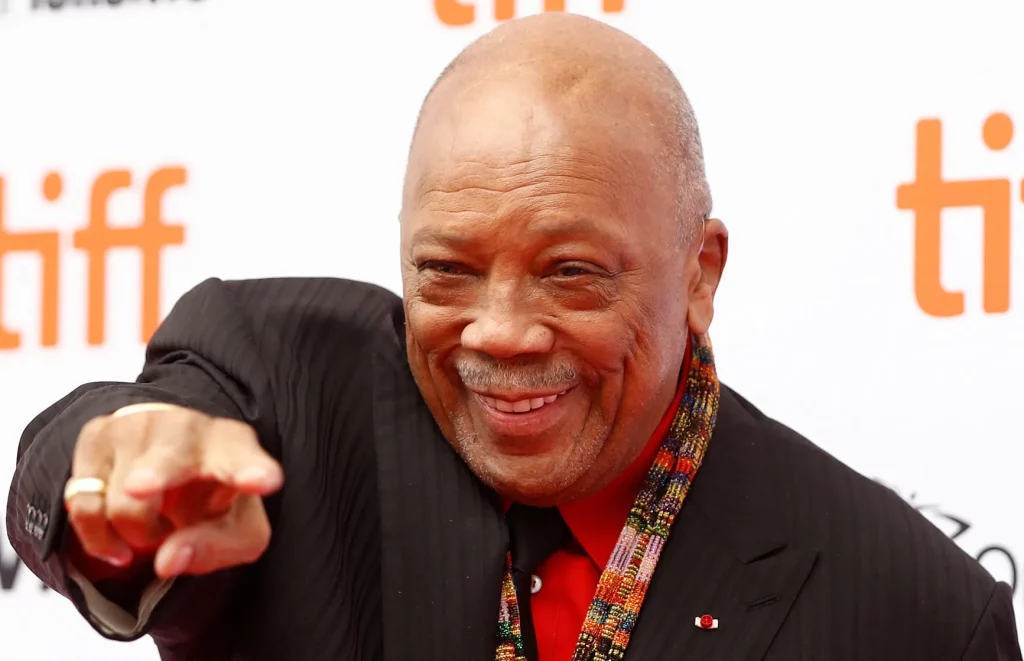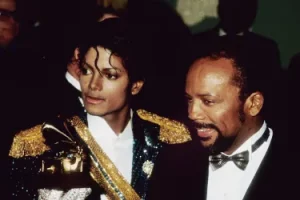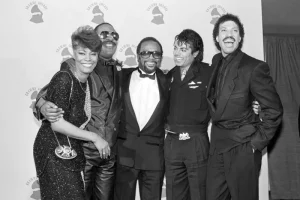News
Quincy Jones: The Maestro of Modern Music

Quincy Jones is a name that resonates across the world of music like few others. With a career spanning over seven decades, he has shaped the soundscape of popular culture, bridging genres from jazz to pop and everything in between. Known for his groundbreaking collaborations with iconic artists such as Frank Sinatra, Ray Charles, Diana Ross, Aretha Franklin, and Michael Jackson, Jones‘s influence has transformed the industry, redefining what it means to be a producer, composer, and visionary. His journey from a challenging childhood in Chicago to becoming a legendary figure with 28 Grammy Awards and countless contributions is a testament to his extraordinary talent, resilience, and commitment to artistic excellence. Through his music, advocacy, and mentorship, Quincy Jones has not only created unforgettable sounds but has also opened doors for generations of artists, cementing his place as one of the most important figures in modern music.
Let’s get to know the Legend Quincy Jones a little bit more
Early Life

Career
Jones‘s career began in earnest as a trumpeter, arranger, and bandleader in the early 1950s, working with jazz luminaries like Lionel Hampton, Count Basie, and Dizzy Gillespie. In the late 1950s, he became the first African American to be hired as a musical director for a major record label, Mercury Records. His career took off, and he became one of the most sought-after composers and arrangers in both jazz and popular music.
In the 1960s, Jones started working in film and TV music, scoring films like The Pawnbroker (1964) and In the Heat of the Night (1967), and he eventually earned acclaim as a versatile film composer. His arrangement work, however, is perhaps best remembered for his collaboration with artists like Frank Sinatra. Their partnership, particularly on the album Sinatra at the Sands, is legendary.
In the 1970s and 1980s, Jones moved into producing and made groundbreaking records, including Michael Jackson’s Off the Wall, Thriller, and Bad. Thriller, the best-selling album of all time, is often considered a crowning achievement in pop music production. During this time, he also produced We Are the World, an all-star single that raised millions for famine relief in Africa. This period solidified Jones as a music producer who could shape hits across genres.
Legacy
Quincy Jones’s impact on music is immense. He is a 28-time Grammy Award winner and has received 80 Grammy nominations, more than almost any other artist in history. His work has helped bridge gaps between jazz, pop, and soul, and he has been influential in fostering racial diversity in the music industry. Many of his protégés, like Michael Jackson, have gone on to shape the sound of modern music. Jones is also known for his work in philanthropy and advocacy, especially in promoting the arts and supporting African American artists.
He founded Qwest Records, one of the first Black-owned record labels, which produced hits and gave artists like Tevin Campbell and New Order a platform. Later, he co-founded VIBE magazine, dedicated to hip-hop and R&B, which became an essential voice in popular culture.
Jones has also contributed to education, establishing the Quincy Jones Musiq Consortium to support music education in schools. His influence is felt across generations, and his advocacy for breaking down barriers in music, particularly in giving minority artists opportunities, is still celebrated.
Though he is no longer as active in production, Jones continues to be involved in the music industry and often speaks at public events, discussing his career and the evolution of the industry. He shared his life experiences and insights in his 2018 documentary, Quincy, which won critical acclaim and showcased his profound impact on American music.
Health and Death
In 1974, Jones suffered a back-to-back brain aneurysm that led to multiple surgeries. His doctor strictly warned him to not play trumpet again to prevent complications but Jones ignored the advice and went on tour in Japan. One night after playing trumpet, he felt pain in his head, and according to the doctors, the clip in his brain almost came loose. And after what happened, he finally listened and stopped playing the trumpet again. In 2015, Jones slipped into a diabetic coma due to Type 2 diabetes.
On November 3, 2024, Quincy Jones passed away peacefully in his home in Bel Air at the age of 91. Currently, the cause of death hasn’t been disclosed.
Public figures and celebrities paid tribute including David Guetta, Elton John, Nile Rodgers, Lenny Kravitz, The Weeknd, and Paulinho da Costa.
His influence continues to inspire new generations of artists across various genres. Through his work, he has broken barriers, changed the soundscape of popular music, and left an indelible legacy that is likely to be celebrated long after he eventually passes.
Here are a few of Quincy Jones’ hits
Quincy Jones – Ai No Corrida
Quincy Jones – Stuff Like That
Quincy Jones – One Hundred Ways
Quincy Jones – Razzamatazz
Quincy Jones, Chaka Khan & Simply Red – Everything Must Change
“When people write about the music, jazz is in this box, R&B is in this box, pop is in this box, but we did everything,”



